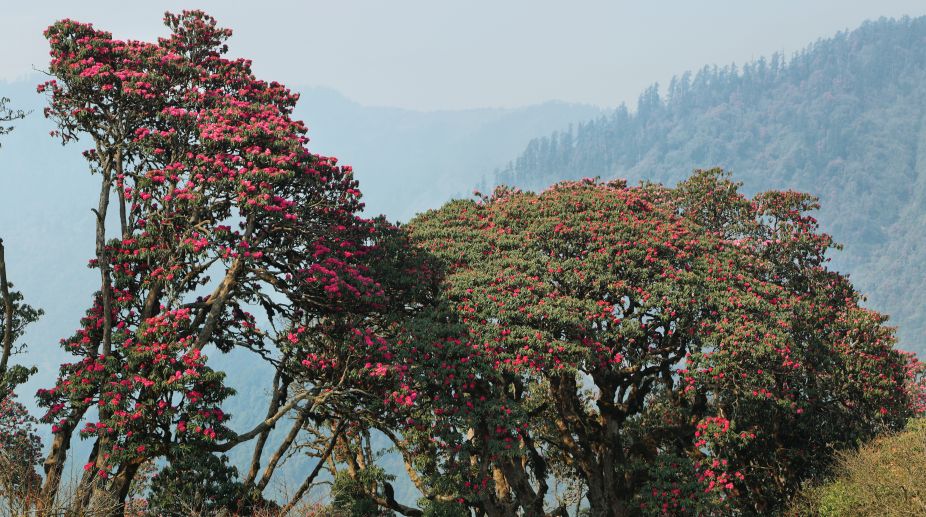Hill-plain controversy in Uttarakhand sparks political storm, draws in UP CM
Without directly naming Yogi Adityanath, Kumar pointed out that the UP CM hails from a hill region.

PHOTO: Getty Images
Spring has just begun, but red rhododendrons are in full bloom up in the hills of Uttarakhand. It's almost a month ahead of its usual blossoming time. The early bloom of rhododendron or Burash as it is known locally, has drawn attention to climate change.
Villagers often welcome the blooming of the state flower as it indicates the end of bitter winter. But, there is an old belief in the hills that early blooming of Burash' affects the crop cycle and forecast a scorching summer.
Advertisement
“It is generally observed that 'Burash' used to touch their peak flowering season after ‘Holi’- in mid March. But, in my village the shrubs of Rhododendron are in full bloom these days,” Pankaj Kushwal, a native of village Raithal in Uttarkashi, says.
Advertisement
Highlanders from Uttarakhand admire 'Burash' for its vibrant colour and flavour. They consume the flower raw as snack by mixing it with 10-12 items. The preparation is called ‘Remodi.’ Rhododendron juice is a popular drink in summer.
Many voluntary organisations are involved in 'Burash' squash manufacturing in Uttarakhand and the new phenomena has also affected them in some way.
“We have not shifted out flower collection period, which resumes in February end to conclude in March. We chose this period as the flavour of the flower is sweet at that time. But, due to early flowering we receive low yield,” says Gopal Thapliyal, project manager of Sri Bhuvneshwari Mahila Ashram.
Burash grow wild in the forest. The flowering season provides livelihood to hundreds of villagers. The flower blooms from late winter through early summer, but the change in cycle is a major concern among local people and scientists.
“It is a matter of great concern that spring season flower are flowering one month early. Otherwise the peak flowering season for 'Burash' is March, but even this time it bloomed early. Low or late rainfall, low snowfall, drying of water sources at high altitude, etc contribute to such phenomena. Yes, it is an impact of climate change,” scientist Vijay Bhatt of state government-owned Herbal Research Centre (Gopeshwar) says.
The economy of Uttarakhand is weather based and any change is likely to affect the livelihood of the locals.
Uttarakhand’s iconic folk singer Narendra Negi says, “'Burash' is deeply linked with our culture. We annually celebrate the month-long traditional festival ‘Phool Dei’ or ‘Phool Sankranti. But, it is generally observed that not many Rhododendron flowers survive when the festival is under-way.”
The month-long Phool Dei is celebrated in mid-March. Children go house to house in the village and place flower on the gate or entrance of the house.
Advertisement